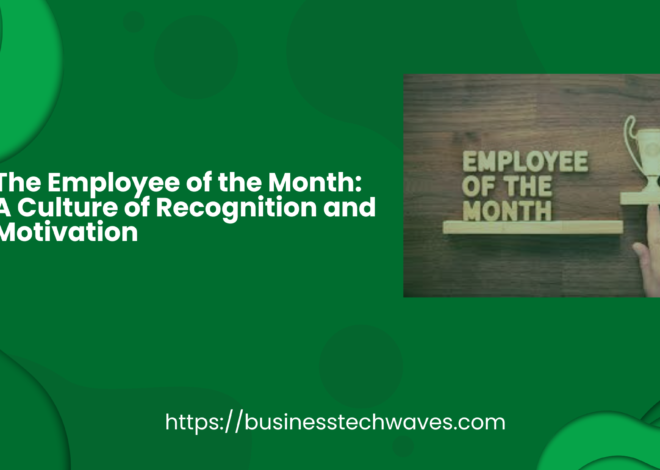
Definition of Total Quality: A Comprehensive Guide and Its Impact on Modern Organizations 2024
Definition of total quality in today’s fast-paced and competitive global market, the concept of quality has evolved from a narrow focus on products and services to encompass every facet of an organization’s operations. Total Quality, often referred to as definition of Total Quality Management (TQM), is a holistic approach to improving the overall performance of a company by integrating quality into every aspect of its processes. This article will explore the definition of Total Quality, its principles, and its role in fostering sustainable organizational success.
Defining of Total Quality
Definition of total quality can be defined as a continuous, organization-wide effort to enhance quality and achieve long-term success by satisfying customer expectations, improving efficiency, and empowering employees. Unlike traditional quality management systems that concentrate on product defects or process inefficiencies, Definition of total quality looks beyond these areas to address the entire organization’s culture, structure, and behavior.
The term “Total” in Total Quality underscores its comprehensive nature—every individual within the organization, from top executives to entry-level workers, is involved in improving quality. It is not limited to production but applies to all departments, including marketing, finance, customer service, and even human resources. The goal is to create a system in which all employees work collaboratively to improve processes, enhance customer satisfaction, and ultimately, achieve the organization’s strategic objectives.
Key Elements of Total Quality
The definition of Total Quality incorporates several key elements that work together to create a cohesive system of continuous improvement. These elements include:
- Customer Focus: The cornerstone of Definition of total quality is its focus on customers. Understanding the needs and expectations of customers, both internal and external, is paramount. Total Quality management aims to exceed customer expectations by delivering high-quality products and services that offer value. Customer satisfaction is both the measure of success and the driving force behind improvements.
- Continuous Improvement: Definition of total quality is inherently dynamic. It seeks to build a culture where continuous improvement is not just a goal but a daily practice. Techniques like Kaizen, a Japanese term for small, incremental improvements, are commonly used. By continuously refining processes, Total Quality Management helps organizations respond quickly to changing market demands and challenges.
- Employee Involvement and Empowerment: Definition of total quality emphasizes the involvement of employees at all levels of the organization. Employees are seen as key stakeholders in the quality improvement process, and their insights are invaluable. Empowering employees to make decisions and take ownership of their work leads to higher levels of engagement, satisfaction, and creativity. Employee training and development are also central to building the skills and knowledge required for continuous quality improvement.
- Process-Centric Approach: Another core element of Definition of total quality is the focus on processes rather than outcomes. By improving processes, organizations can prevent defects and inefficiencies from occurring in the first place. Techniques such as process mapping, root cause analysis, and Six Sigma are commonly used to identify bottlenecks and streamline workflows.
- Integrated Systems: Definition of total quality requires that all components of an organization—its departments, people, and processes—are integrated into a unified system. Quality cannot be achieved in isolation, as interdepartmental collaboration is critical for comprehensive improvements. This integration enables organizations to operate cohesively and avoid the silos that often hinder progress.
- Leadership Commitment: Strong leadership is essential for the successful implementation of Total Quality initiatives. Leaders must be committed to fostering a culture of quality, setting clear expectations, providing resources, and supporting continuous improvement efforts. Leadership involvement ensures that quality becomes ingrained in the organizational culture, rather than being treated as a one-time project or departmental responsibility.
- Data-Driven Decision Making: Definition of Total Quality Management relies on data and facts rather than assumptions or intuition. Quantitative analysis of performance metrics, customer feedback, and process data helps organizations identify areas for improvement and make informed decisions. This analytical approach minimizes guesswork and enhances the precision of quality improvement initiatives.
Historical Context of definition of Total Quality
The roots of definition of Total Quality can be traced back to the early 20th century, with the advent of scientific management and the rise of mass production. However, the modern concept of Total Quality as we know it today gained momentum in the mid-20th century, largely influenced by the works of quality management pioneers such as W. Edwards Deming, Joseph Juran, and Kaoru Ishikawa.
- W. Edwards Deming is perhaps the most well-known proponent of Total Quality. His philosophy centered on the idea that improving quality leads to reduced costs, improved productivity, and increased market share. Deming introduced the Plan-Do-Check-Act (PDCA) cycle, a methodology that encourages continuous improvement through iterative steps.
- Joseph Juran introduced the concept of the “quality trilogy,” which focuses on quality planning, quality control, and quality improvement. His work emphasized the importance of leadership and the role of top management in driving quality improvement initiatives.
- Kaoru Ishikawa is credited with popularizing the use of quality control tools, such as the fishbone diagram (also known as the Ishikawa diagram), which helps organizations identify the root causes of problems. He also emphasized the importance of involving all employees in quality efforts, a key tenet of Total Quality.
In the 1980s and 1990s, Definition of Total Quality gained widespread adoption in Western businesses as companies sought to compete with Japanese manufacturers, who had achieved remarkable success through their focus on quality. Today, Total Quality continues to evolve, integrating modern concepts such as Lean and Six Sigma to further enhance organizational performance.
Principles of Total Quality Management
The principles that underpin Total Quality Management form the foundation of the approach, guiding organizations in their pursuit of excellence. These principles are universally applicable, regardless of the industry or size of the organization.
- Customer Focus: The principle of customer focus is the bedrock of Total Quality. Organizations must understand their customers’ needs, anticipate their future requirements, and consistently deliver value. This focus on customer satisfaction drives improvements in products, services, and processes.
- Leadership: Effective leadership is crucial in establishing unity of purpose and direction within the organization. Leaders create an environment where employees are aligned with the organization’s vision and motivated to contribute to quality improvements. Leadership also plays a vital role in communicating the importance of quality to all stakeholders.
- Engagement of People: For Total Quality to be successful, all employees must be actively involved. People at every level contribute to quality initiatives, and their skills and creativity are leveraged to drive improvement. Organizations foster engagement by empowering employees, encouraging teamwork, and providing opportunities for development.
- Process Approach: By viewing activities as interconnected processes, organizations can ensure that resources are used efficiently and consistently produce desired results. Managing processes with a focus on optimization and improvement leads to greater efficiency, reduced waste, and higher-quality outputs.
- Improvement: Continuous improvement is a core principle of Total Quality. Organizations must be constantly looking for ways to enhance performance, whether through small, incremental changes or larger, breakthrough improvements. This principle helps organizations stay competitive and adapt to evolving market conditions.
- Evidence-Based Decision Making: Decisions made based on data are more likely to lead to successful outcomes. Collecting and analyzing relevant data provides insights into trends, areas for improvement, and the effectiveness of changes. This principle encourages a culture of accountability and objectivity.
- Relationship Management: Total Quality recognizes that organizations do not operate in isolation. Building strong relationships with suppliers, customers, and other stakeholders is essential for sustaining long-term success. Collaborative partnerships allow organizations to share knowledge, innovate, and improve quality throughout the value chain.
The Benefits of Total Quality
Implementing a Total Quality approach yields numerous benefits for organizations. Among the most significant advantages are:
- Enhanced Customer Satisfaction: By prioritizing customer needs and delivering consistent quality, organizations can increase customer loyalty and improve their reputation in the marketplace.
- Increased Efficiency: A focus on process optimization and waste reduction results in more efficient operations, lower costs, and higher profitability.
- Better Employee Engagement: Empowering employees to participate in quality initiatives boosts morale, enhances job satisfaction, and fosters a sense of ownership and pride in the organization’s success.
- Reduced Risk: By identifying and addressing potential issues before they escalate, Total Quality helps organizations minimize risks and improve overall reliability.
- Continuous Innovation: Total Quality encourages a culture of continuous learning and improvement, which fosters innovation and helps organizations stay competitive in a rapidly changing market.
Conclusion
Total Quality represents a comprehensive, long-term commitment to achieving excellence through continuous improvement, customer focus, and employee engagement. Its principles and practices can transform an organization’s culture, drive innovation, and ensure sustainable success in a competitive business environment. As companies increasingly recognize the importance of Total Quality, its adoption is becoming not just a choice but a necessity for those seeking to thrive in the modern economy.


